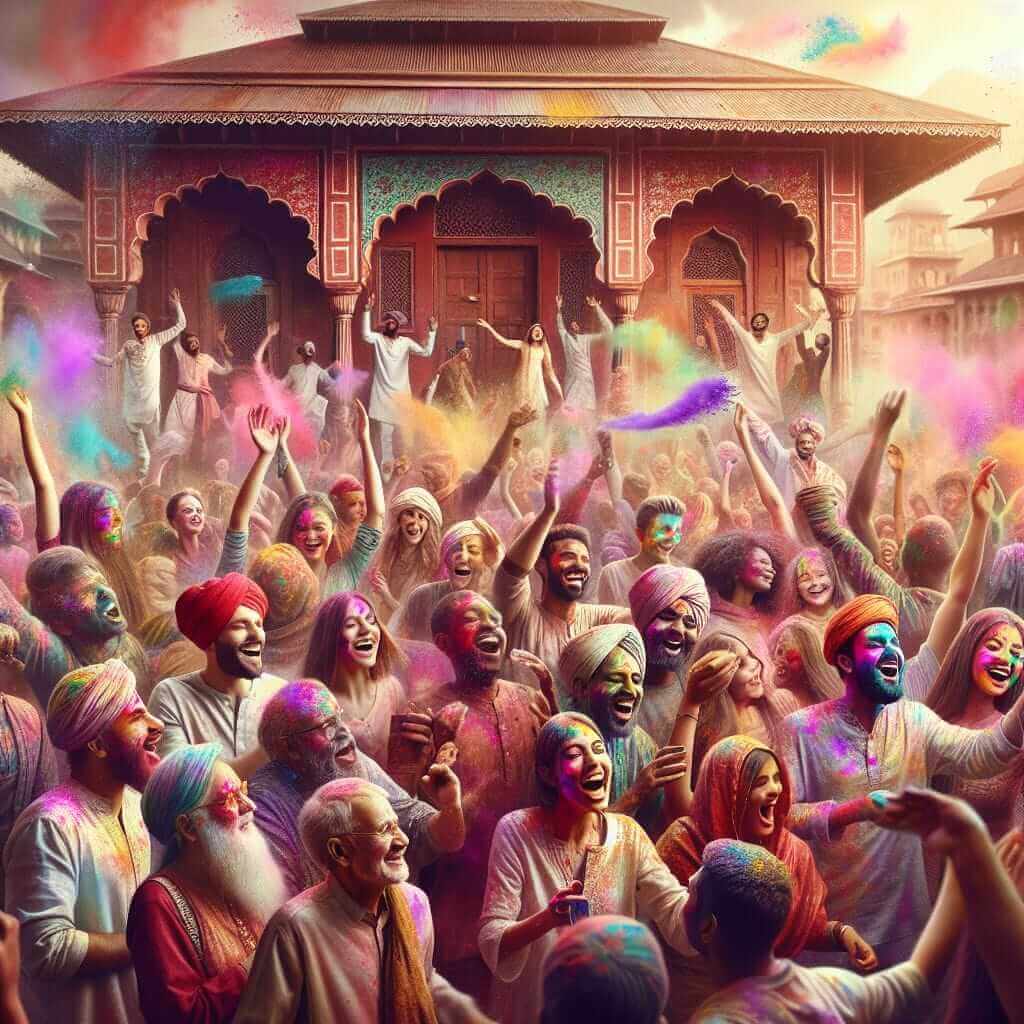The intersection of culture and tourism is a fascinating area of study, and “the influence of cultural festivals on tourism” is a recurring theme within this domain. This topic frequently appears in IELTS Writing Task 2, challenging test-takers to analyze the multifaceted relationship between these two elements.
This article aims to equip you with the knowledge and skills to effectively address this topic in your IELTS exam. We will delve into potential essay questions, dissect a chosen question, provide a band 8 model answer, highlight key vocabulary, and offer valuable writing tips.
Understanding the Topic and Potential Questions
Before we analyze a specific question, let’s consider some potential essay prompts related to the influence of cultural festivals on tourism:
- To what extent do you agree or disagree that cultural festivals are the primary driving force behind tourism in many countries?
- Discuss the positive and negative impacts of cultural festivals on tourism destinations.
- Some people believe that cultural festivals are losing their authenticity due to their increasing popularity with tourists. Do you agree or disagree?
Sample Question and Analysis
For our model answer, we will focus on the following question:
“Cultural festivals play a vital role in promoting tourism. However, some argue that excessive tourism driven by these festivals can negatively impact local communities and traditions. Discuss both views and give your opinion.”
Analysis:
This question presents a classic “discuss both views and give your opinion” structure. You are required to:
- Acknowledge both sides of the argument: Explain how cultural festivals promote tourism and how excessive tourism can harm local communities.
- Provide your opinion: Clearly state your stance on whether the benefits of festival-driven tourism outweigh the drawbacks.
- Support your arguments: Use relevant examples and evidence to substantiate your points.
Model Answer
Cultural festivals, with their vibrant displays of tradition, art, and heritage, have become significant drivers of global tourism. While these celebrations undoubtedly attract visitors and boost economies, concerns linger about their potential negative impact on local communities. This essay will explore both sides of this debate before presenting my personal viewpoint.
Proponents of festival tourism highlight its undeniable economic benefits. Festivals draw in large numbers of visitors, generating revenue for local businesses, creating jobs, and bolstering the tourism industry as a whole. Take, for instance, the annual Holi festival in India. This vibrant celebration of color attracts thousands of international tourists, injecting millions of dollars into the local economy and supporting countless livelihoods. Furthermore, festivals provide a platform for cultural exchange and understanding. When tourists participate in local customs and traditions, they gain a deeper appreciation for the host culture, fostering cross-cultural dialogue and breaking down stereotypes.
<
However, the influx of tourists during festival seasons can strain local resources and disrupt the social fabric of communities. Overcrowding, noise pollution, and inflated prices are just a few challenges faced by residents. Moreover, the very authenticity that attracts tourists can be eroded by commercialization. The pressure to cater to tourist demands can lead to the modification or even exploitation of cultural practices, transforming genuine celebrations into mere spectacles. This not only diminishes the cultural significance of the event but can also alienate local communities from their own traditions.
In conclusion, while I acknowledge the economic merits and potential for cultural exchange that festivals bring, I believe that uncontrolled tourism driven by these events can have detrimental effects on local communities and their heritage. To mitigate these issues, a sustainable approach to festival tourism is crucial. This involves managing tourist numbers, promoting responsible behavior, and ensuring that local communities have a voice in shaping the tourism landscape during festival seasons.
Word Count: 285 words
Writing Tips and Vocabulary
- Structure: Use a clear structure to present both sides of the argument and your opinion. Paragraphing is key!
- Examples: Use specific examples of festivals to support your points.
- Vocabulary: Use a range of vocabulary related to tourism, culture, and impacts (both positive and negative).
Key Vocabulary:
- Proponents (n.) /prəˈpoʊnənts/: supporters or advocates of a particular idea or course of action.
- Bolstering (v.) /ˈboʊlstərɪŋ/: supporting or strengthening something.
- Infux (n.) /ˈɪnˌflʌks/: an arrival or entry of large numbers of people or things.
- Erosion (n.) /ɪˈroʊʒən/: the gradual destruction or wearing away of something.
- Spectacles (n.) /ˈspɛktəkəlz/: public displays or events intended to be impressive or exciting.
Conclusion
Mastering the art of writing about “the influence of cultural festivals on tourism” requires a nuanced understanding of the topic’s complexities. By analyzing sample questions, practicing your writing skills, and familiarizing yourself with relevant vocabulary, you’ll be well-prepared to excel in your IELTS Writing Task 2. Remember to practice consistently and seek feedback to refine your writing further.
In addition to the sample question discussed, consider exploring other related themes like the role of government in promoting cultural tourism, the impact of technology on festival experiences, and the ethical considerations surrounding the commodification of culture. Your journey to IELTS success begins with a single step, so start practicing today!